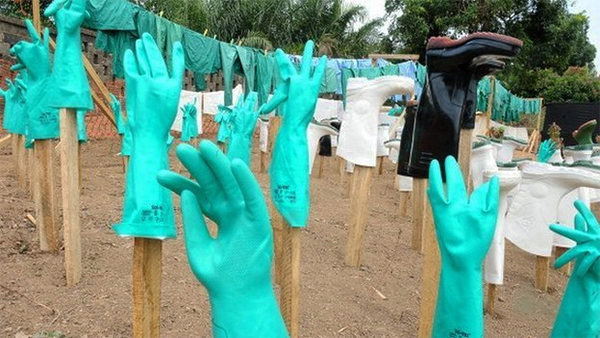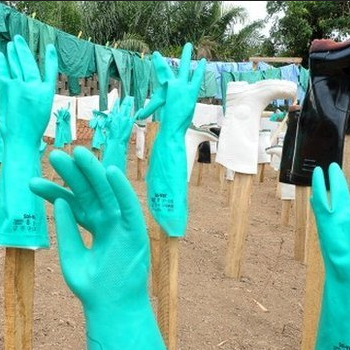
photo via
A crowded press conference at the Department of Health in London, shortly after the news of an American patient contracting Ebola sparked panic all over the world. Local authorities are talking to a group of newspaper and TV journalists – reassuring them about the country’s robust healthcare system. Even if Ebola reached the UK, patients would be promptly isolated and treated.
Leaving the room, a health reporter whispers to a colleague ‘Come on, we are all being a bit hysterical aren’t we?’ Her reply is curt: ‘I don’t want to get it! Do you!?’
When Charlie Cooper, health correspondent at The Independent, recalls this story over a drink, he still rolls his eyes as if the episode had just happened.
The unprecedented attention given to the Ebola case by the global media was mainly due to the fear it could spread across the world, although in fact Ebola is difficult to catch and easy to control. In West Africa, the disease thrived on site-specific conditions such as poverty and a disrupted health care system. In London – and pretty much everywhere in the rich part of the world – a patient diagnosed with Ebola would be immediately isolated and receive intensive care.
Despite some rare cases out of the affected areas, the risk of a global epidemic was – and remains – relatively low. So what made it so different, more newsworthy, scarier than others health emergencies in the developing world? What called the media to action?
EBOLA DIARY by Geraldine O’Hara (radio)
A recent analysis carried out by a group of students in the UK found that the top universities in the country spend just the 2 per cent of their health research budget on on neglected diseases such as Chikungunya, Rabies or Ebola. These are diseases that almost exclusively affect the developing world and don’t make a lucrative market for pharma companies. Even universities are wary of investing a lot of money in studies that may never be implemented.
Some parts of the world – mostly the same areas overlooked by research – are neglected by the media too. In the UK and in Italy, places like Africa, South East Asia or Latin America are hardly covered by the non-specialised press. But the Ebola outbreak toppled the canons of newsworthiness.
In proportion to other outbreaks, Ebola didn’t claim a particularly high mortality rate. Other humanitarian crises involving places like Nigeria, in the grip of Boko Haram which killed over 10 thousand people, received very little global recognition.
But the Ebola crisis – with its potential capacity to travel across the world, and with no cure currently available – has been a stark reminder that globalisation doesn’t exist solely on the internet and in the financial markets. What happens in public health on the other side of the world can no longer be ignored.
Journalists reacted to the crisis in two ways: by focusing on what may happen should Ebola travel to their countries on the one hand, and by embracing the human, local side of the story on the other. Doctors and media correspondents sent in their diaries; the story told in first person as they immersed themselves fully in the lives and struggles of local communities. As if in parallel, despite the completely different conditions, rumours spread both in West African communities and in the West.
In the face of Ebola, the media pushed the boundaries of what we conventionally call ‘journalism’: adopting new perspectives, taking part, finding new ways of combating rumours and sparking mistrust in the public healthcare system.
To ijf15 we invited three international journalists, a health entrepreneur and a doctor to address some of those issues. They will also tell of their personal journey through a global crisis that left the world scarred, but holds lessons for science, policymaking, and journalism as well.
Ebola Deeply: Ebola On The Ground: The Decontaminator (video)


